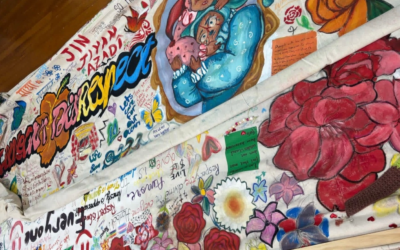Article written by Ruby Ritchie | Edited by Nataša Aster-Stater
In recent news, the federal government announced that students undergoing teaching, nursing, and social work placements may be eligible for weekly payments by July 2025.
The government calculated that students could receive up to $319.50 a week.
While the government expects the change to help, students say it’s not enough to ease the economic challenges they’re currently facing.
What is placement poverty, and who does it impact?
“Placement poverty” is a term first coined by Social Work students in April 2024, in reaction to the hardships of struggling financially whilst trying to maintain their placement experience.
Students say the time spent on placements without income has pushed them close to or below the poverty line, which is defined as half the median household income, according to Poverty and Inequality Australia. As of 2022, it’s $489 a week for a single adult, and $1,027 a week for a couple with two children, as stated by the Australian Bureau of Statistics (ABS).
Jasmine Taylor is a learning support officer and a teaching student at Western Sydney University. Even after taking an additional job in retail and receiving youth allowance entitlements, Jasmine says she is struggling to stay afloat:
“I was, up until a few weeks ago, working two jobs and accessing Centrelink and that still was barely covering my essentials…Everything is so expensive,” Jasmine said.

Like Jasmine, anyone studying teaching, social work or nursing must complete placements as a part of their qualifications. However, these placements are unpaid and span between 16-26 weeks.
The $319.50 a week is equivalent to the single Austudy weekly rate. The payment will be means tested and available from July 1, 2025.
The government has stated that 68,000 higher education students and 5,000 VET students would be entitled to the payment, but it is only available to teaching, nursing and social work students.
“This will give people who have signed up to do some of the most important jobs in this country a bit of extra help to get the qualifications they need…This is practical support for practical training,” said Federal Minister for Education, Jason Clare, in a media release.
While she has yet to start her placement, Jasmine feels the payment amount is too little and believes that the Austudy entitlement is not a fair benchmark.
“Yes, money is money, and a step forward is good. But this isn’t something that students should be subjected to, in terms of using their time, energy and resources to supplement the shortages they have in those industries,” Jasmine said.
Students say government should increase payments to minimum wage:
Sabrine Yassine, the Welfare Officer of the National Union of Students (NUS), said whilst the union welcomes the payment as a significant step, the federal government should go further.
“It’s such a great first move… government is listening to students in terms of what they want… it alleviates about 10 to 20 hours for students, that’s 10 to 20 hours they don’t need to work on a part time job,” Sabrine said.

When broken down, the proposed payment will total $8 an hour. The NUS urged the federal government to increase the payment to the national minimum wage, being $23.23 per hour or $882.80 per 38-hour week.
“We have three clear asks…amend the Fair Work Act to make unpaid placements illegal, increase the payments to at least minimum wage, and pay all students who must undertake mandatory placements,” added Sabrine.
Why can’t every student access this?
One critique the government has faced is that medical, engineering, and psychology students won’t be entitled to the payments.
In addition, the entitlement can only be accessed by domestic students, as Centrelink is only accessible to Australian citizens and permanent residents.
“All students should be paid. All unpaid work should be illegal…I think international students are doing the same amount of work and unpaid hours as domestic students,” Sabrine said.
The next steps:
The government has not yet revealed how they will conduct the means test for this payment but has said students can access the payment alongside other entitlements.
Jasmine remains sceptical of the government’s payments but is hopeful for change.
“I think the generation going into all of these industries is very aware of what they deserve, their rights, and what isn’t okay to experience. Unpaid placements are absolutely not okay,” Jasmine said.
The payment to help ease placement poverty will not come into the hands of students until 2025, however, and there is hope that the government broadens the list of eligible courses that qualify, so many more in need can receive assistance.
When Education Minister, Jason Clare, was asked by Radio National on whether more courses will be added, he neither confirmed nor denied:
“That’s something we’d have to look at down the track.”



